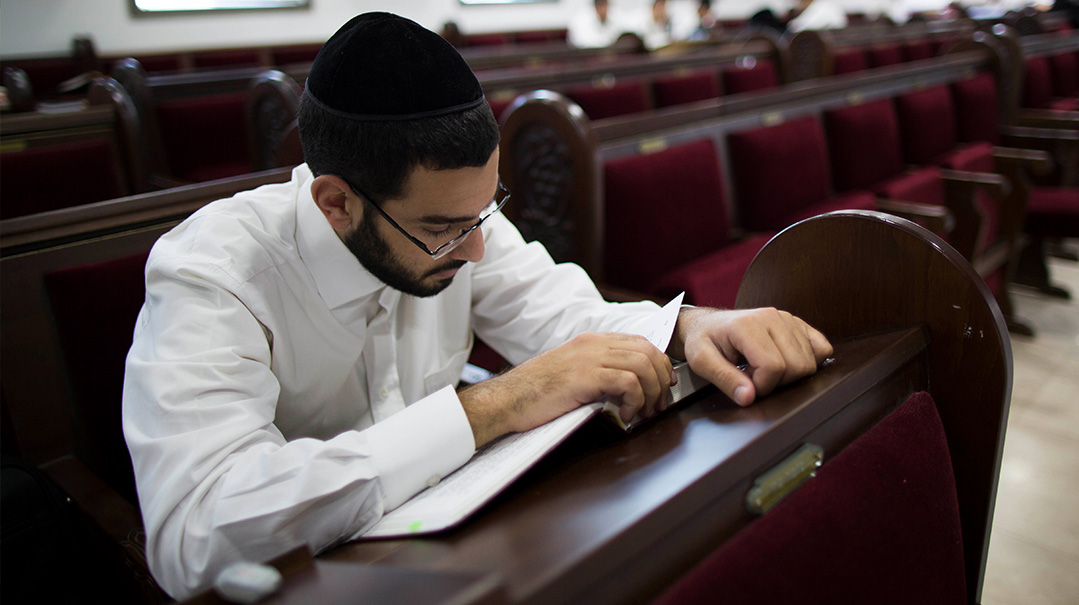Danger Zone Ahead
| January 27, 2021If the courts are not on our side, how can we fight the increasing trend of antireligious legislation?
In October 2013, the European Council adopted a non-binding resolution stating that the ritual of bris milah “violates the physical integrity of children” and urged all European countries to ban the practice. In its wake, the Conference of European Rabbis, outraged at the resolution, created a public conference with the theme of “Is There a Future for Jews In Europe?”
Thorbjorn Jagland, then general secretary of the European Council, participated in the conference, where he announced that the resolution against bris milah had been reached due primarily to anti-Muslim sentiment, but more than anything, due to ignorance: “I would like to make one thing unequivocally clear to you right here and right now,” he stated. “In no way does the European Council want to ban the practice of male circumcision.”
And indeed it was not long afterward that the disgraceful resolution was revoked, due to pressure from the Conference of European Rabbis and other international Jewish organizations.
While that immediate threat to bris milah was avoided, the danger hasn’t passed. Only recently the European Court of Human Rights upheld the ban on halachic shechitah that had passed the two chambers of the Belgian parliament, on the grounds that it does not constitute an infringement of religious liberty.
THE ABSURDITY in the court’s decision lies in the justices’ apparent belief that they understand the significance of halachic shechitah better than Jews, when they say that the ban doesn’t infringe on religious liberty. Disappointingly, the court dismissed the opinion of Gerard Hogan, the advocate general of the European Court of Justice in Luxembourg, which stated that Belgium’s ban on halachic shechitah contravenes the European Union’s laws on religious liberty.
On such a significant issue that can have reverberations all over, we can’t merely treat it as a localized incident. The ban on halachic shechitah is a mortal blow to religious liberty and human rights, and a precedent that challenges our right to live in accordance with Jewish law. Make no mistake, this is a European problem, not a Belgian one.
The radical Islamists want to return to the Middle Ages and the time of the khalifs, while the radical right wants to turn back the clock to 1914. And us? We Jews want to go forward without abandoning the past. But if the courts are not on our side, how can we fight the increasing trend of antireligious legislation?
Eight years ago, the US Congress passed the Magnitsky Act, which was signed into law by President Barak Obama. The act authorizes the United States government to impose sanctions on anyone it sees as violating basic human rights, to freeze their assets and ban them from entering the United States.
The bill was drafted when a Russian lawyer named Sergei Magnitsky died in a Moscow prison after investigating a $230 million fraud case involving Russian tax officials. Bill Browder, an American businessman and friend of Magnitsky, publicized the incident and lobbied Congress to take action on the matter.
Three years ago, the Canadian parliament passed a similar law, and two years ago the British parliament passed a Magnitsky amendment to the Sanctions and Anti-Money Laundering Bill, which grants the government the power to place sanctions on severe human rights offenders. The European Parliament also overwhelmingly approved a resolution to draft such a law, and several months ago, European Commission president Van Der Leyen stated that one of the commission’s goals would be to pass a European version of the bill.
According to Clause 13 in the Magnitsky law, infringement of religious liberty is defined as a violation of basic human rights, and can also be punished with sanctions.
THE ADVANTAGE of making use of this bill is that even if a given court decides to uphold legislation that violates human rights, the legislators could still be sanctioned. There could always be other bodies, the US Congress for instance, which won’t accept the court’s ruling and will see it as a violation of basic human rights.
We believe it’s vital for Jewish leadership in Israel, Europe, and the United States to make sure that laws are passed in the Knesset, in Congress, and of course, the European Parliament, defining the shechitah ban as an infringement of religious liberty. This will pave the way for sanctions against countries that pass such laws, which will, hopefully, provide a strong deterrent against the wave of antireligious activism spreading like a virus and threatening the future of religious Judaism in Europe.
Rav Pinchas Goldschmidt is chief rabbi of Moscow and president of the Conference of European Rabbis.
(Originally featured in Mishpacha, Issue 846)
Oops! We could not locate your form.












